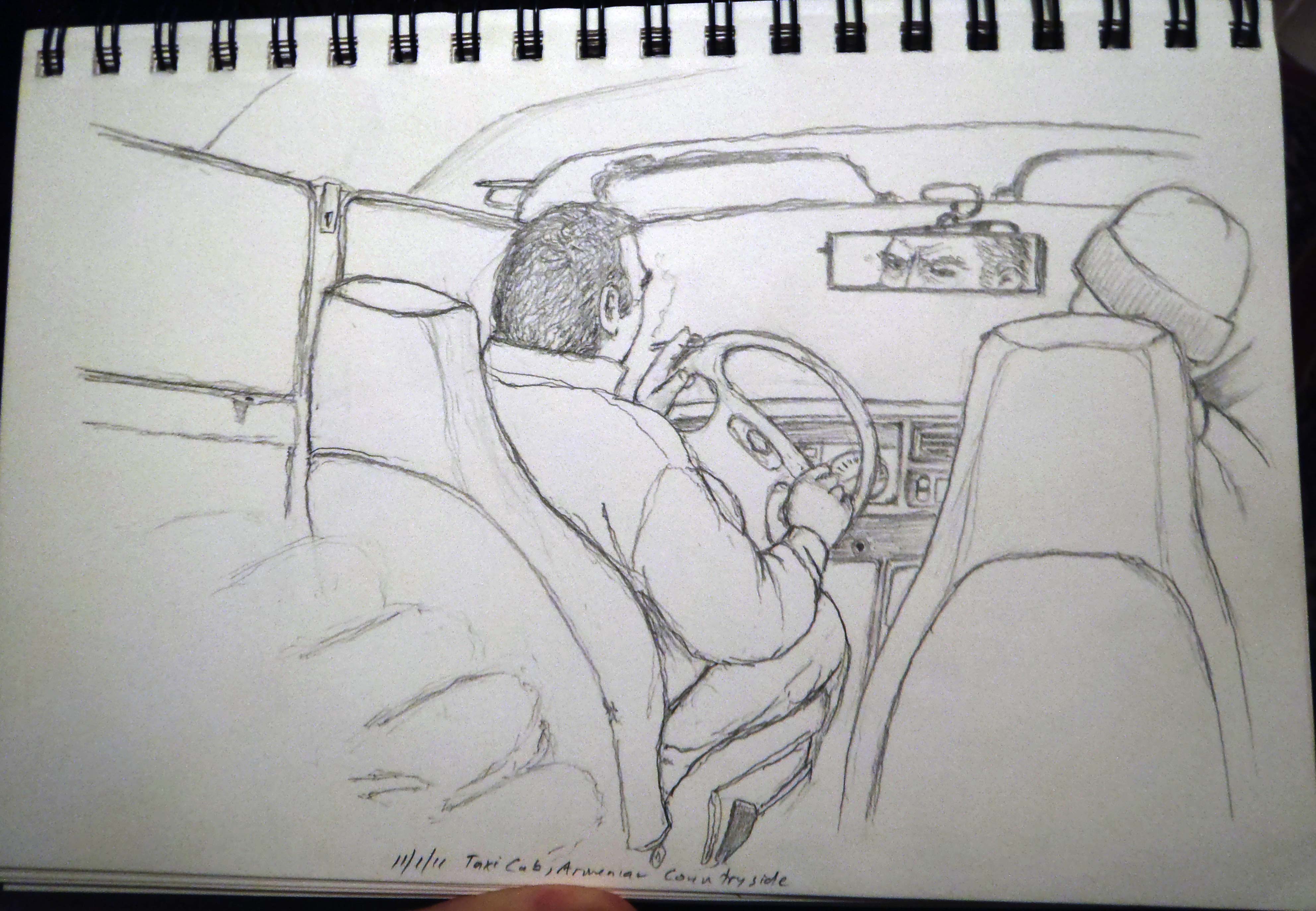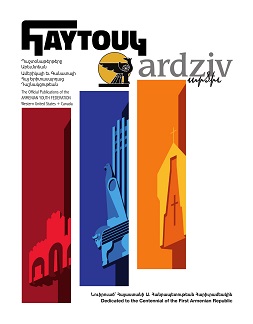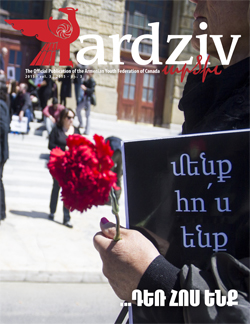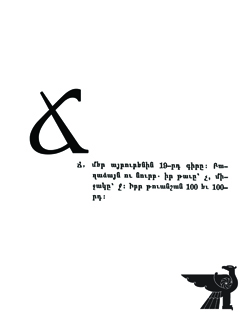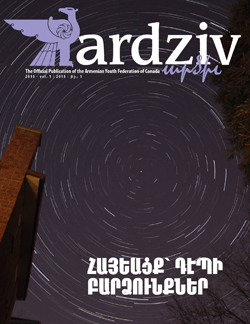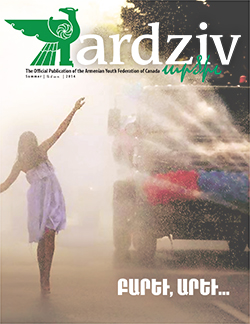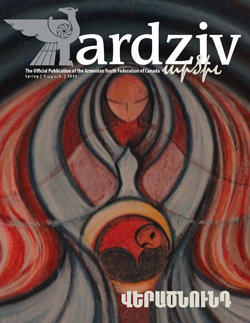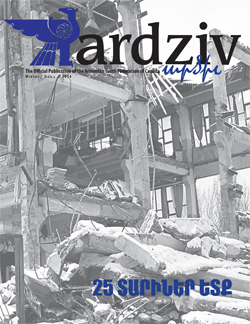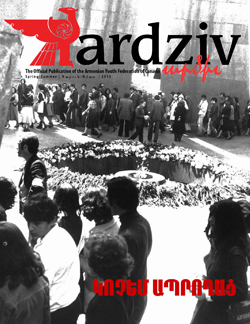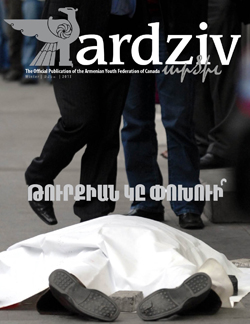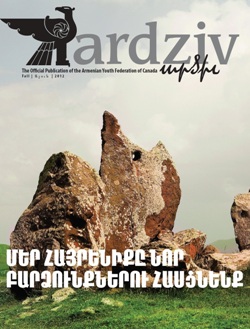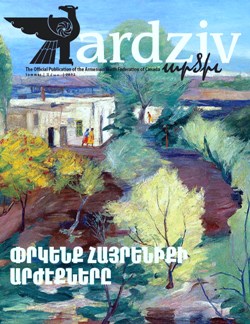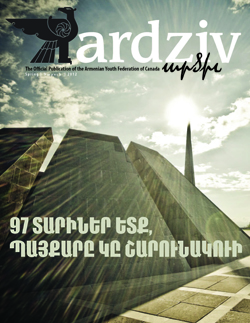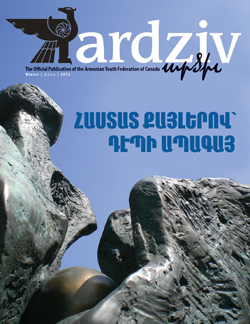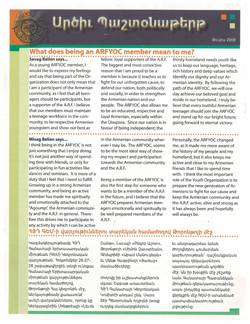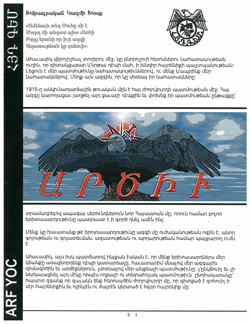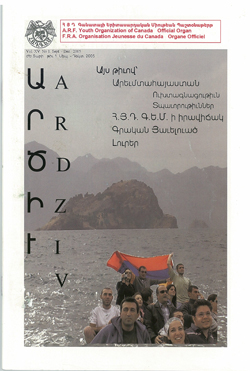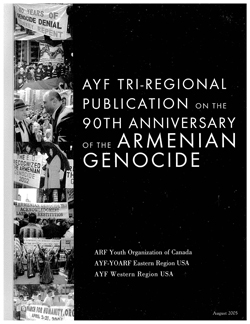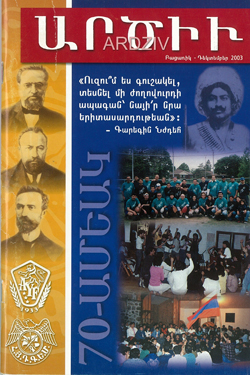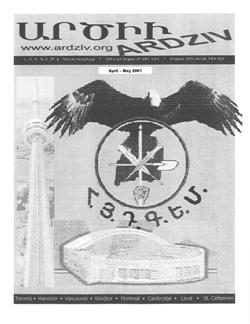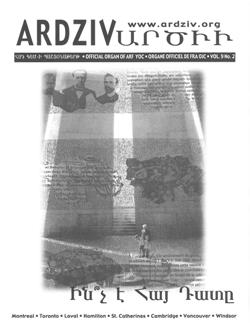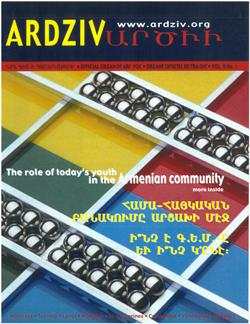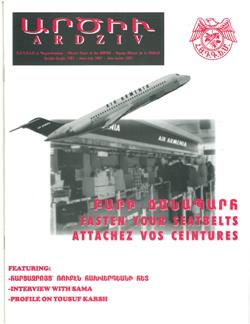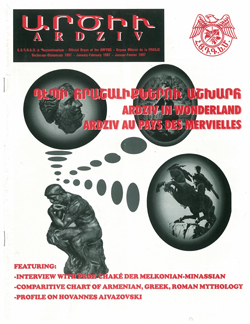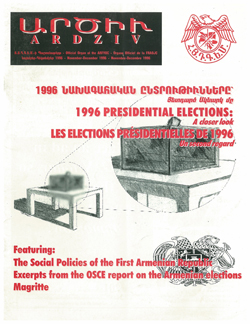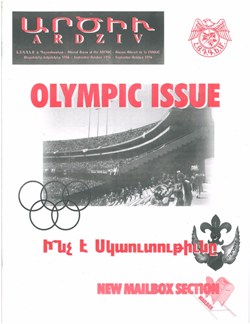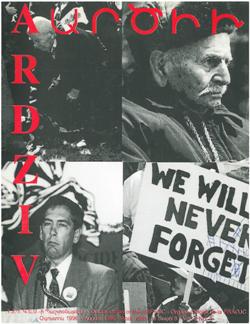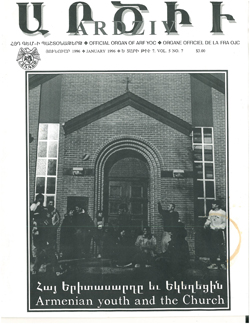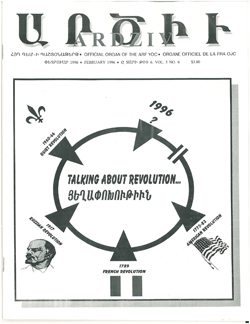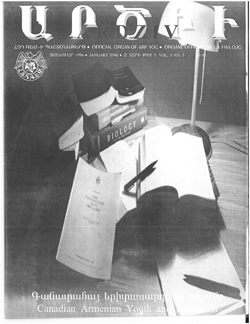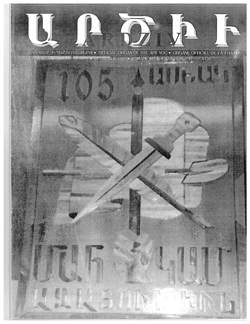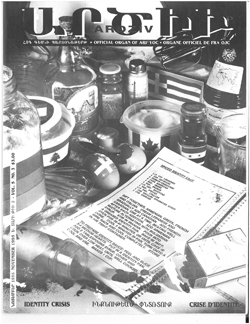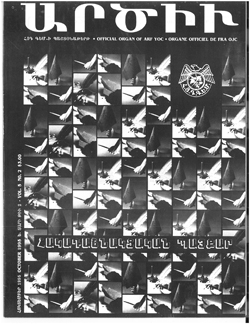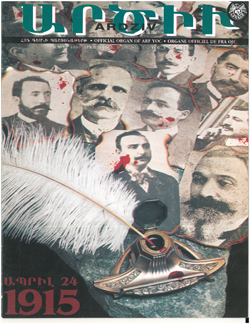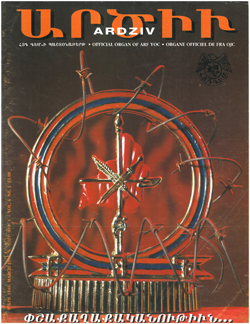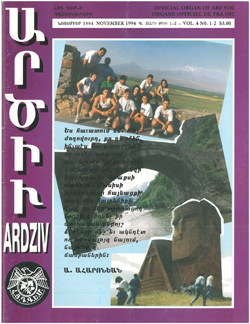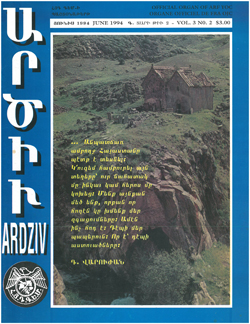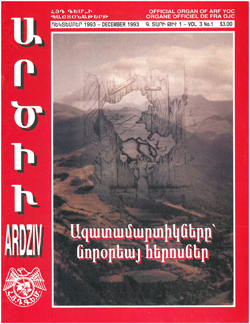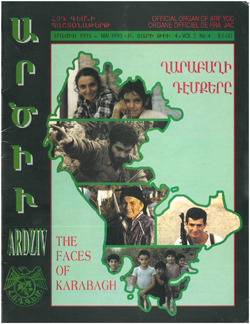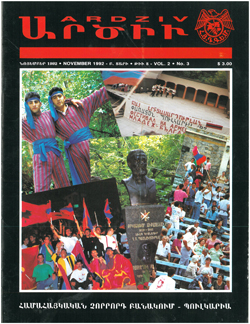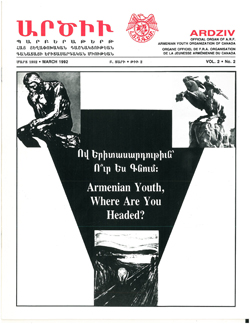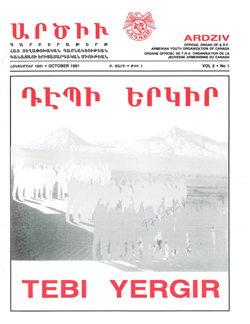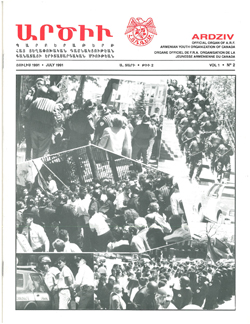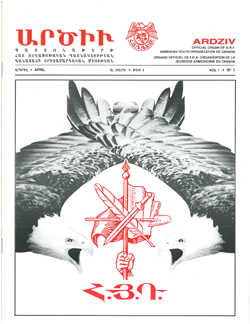All Roads Lead to Ararat
By: Varak Babian | Posted on: 11.07.2012Warning: Undefined array key "ssba_bar_buttons" in /home/u108981792/domains/ardziv.org/public_html/wp-content/plugins/simple-share-buttons-adder/php/class-buttons.php on line 602
Warning: Undefined array key "ssba_bar_buttons" in /home/u108981792/domains/ardziv.org/public_html/wp-content/plugins/simple-share-buttons-adder/php/class-buttons.php on line 602
Warning: Undefined array key "ssba_bar_buttons" in /home/u108981792/domains/ardziv.org/public_html/wp-content/plugins/simple-share-buttons-adder/php/class-buttons.php on line 602
Warning: Undefined array key "ssba_bar_buttons" in /home/u108981792/domains/ardziv.org/public_html/wp-content/plugins/simple-share-buttons-adder/php/class-buttons.php on line 602
I came to Armenia with hopes of immersing myself within the community- to interact with locals and try my hand at rubbing shoulders. My workplace offered ample and immediate opportunities: young professionals born and raised on Yerevan’s pavements. Yet, I found that workplace small talk can dry out quickly. Questions of where I’m from, what I’m doing in Armenia were fielded, but it was clear that emotional guards were activated at a hair trigger. I was an intern and, like many interns, my time with them was temporary. No need to invest in anything substantial.
I have a favourite grocery store. Actually, an older lady who occupies a corner stall on the street by my apartment. Her fruits are fresh, and she speaks of her merchandise like kin folk- cousin apricot, uncle cherry and sister plum. She speaks of them with great regard, and introduces them with great flare on many an occasion as I walked by. The keeper of these fruit is silver tongued and quick to turn a phrase. We speak of human relationships, marriage and family and she often warns me of the hardships that come with them. Though sweet, our exchanges are often short as she is as high in demand as her prized produce is. You can be certain that I am not the only one interested in tasting her supply.
While in Yerevan, I am lucky enough to have a support system of fellow Diasporan Armenians, but I do not want to lean too heavily on their shoulders. I am fortunate that I have many Armenian friends back home, and we have often talked diligently about the problems we face living away from our ancestral home- about the things we can do to be proactive about issues of Armenian nationhood and identity. Recently, these conversations have been mirrored with new friends from Hawaii,Uruguay, who have also found their way to Armenia. As engaging as these idea exchanges were, they still didn’t truly excite me. I was looking for a fresh perspective, a voice I had not yet been exposed to.
The group of people who I found myself interacting with the most- those who were most often interested in a conversation and willing to delve in dialogue, were the infamous taxi drivers of my newly settled city. The taxi cab can be a Petrie dish for verbal stimulation as you share an intimate space with a stranger, and trust must quickly be simultaneously secured and extended. I have had many “taxi cab confessionals” with drivers in Toronto. We would often find common ground somewhere between the reality of immigrant life and the more obnoxious segments of the general public. Often, we have shared our love for our adopted country while still touching on the hardships of working long hours, making something of ourselves for our families, our friends.
My relationship with the drivers in Yerevanwas an evolving process. At first I was brisk as constant talk of drivers hustling Diasporans- charging an extra 200 dram- were ringing in my ears. I had just arrived in the country, and wanted to prove that I belonged: I wouldn’t be taken advantage of. I was still quite guarded and would quickly mention my desired intersection. Two simple words- though they missed a certain heavy intonation and would invariably cue the follow up interrogation: Where are you from? What do you do here? How did they know so quickly? Am I silly to feel like a tourist in my own country? Why do I stick out so obviously- is it the way I step, the way I dress? In due time, these assumptions and self-doubt began to slowly mellow. I was different, I grew up far away from “home”. I did not share their colloquialism, nor were my sentences infused with Russian slang. My pronunciation wasn’t the same as the people who I tried to reflect, but maybe all of that was OK…
I began to embrace the fact that I was different, the fact that I had chosen to come to Armenia when many of my countrymen were devising their departure. I started to realize the questions of my arrival to Armenia, inquiries of my birthplace were not tinged with condescension. It is human nature to be curious, and their interest in my circumstances is positive- not offensive. They were impressed with the Armenian that flowed past my lips and listened to me boast about the 30 000 inhabitants of my community far, far away that love their motherland, and are in constant and conscious toil to remain fiercely Armenian. They were proud that many people like myself made the journey back to Armenia- not only as tourists, aiming to soak up Ararat’s scenic views, enjoy Yerevan’s café culture and the country’s cheap cigarettes- but also, to try to make an impact and leave our fingerprints behind.
The people of Armenia are often frustrated, and that same frustration should be felt in the pulse of the drivers. Their opportunities surrounding work are limited, and as I would explain that I wasn’t a mogul’s son, arriving in Armenia on the back of my own sweat and hard work, they would make it clear that work is not something they shy away from: there are simply no avenues to explore. The usual refrain would centre on the oligarchs- those fat cats that control the country. They offered that while Armenia should stand up, our financial and political dependence on other countries has cut us off at the knees. I am not naïve enough to think that their anecdotes and about first hand stories of corruption were free of hyperbole, but nevertheless they made their impact. I would try earnestly to offer any insight- ways the situation could possibly improve. I wonder if perhaps a few generations must pass, until the Soviet mentality passes and the “everybody for themselves” mantra changes.
Often times my ego would be stroked, as suggestions of a person like me running for office was presented- somebody born outside of Armenia, who cares about its people and not their own personal gain. I am encouraged when I look at Georgia, with their American educated president who has made such an impact: corruption is down, the country is blooming.
I have begun to understand that this way that I feel- a disappointment, or frustration in the people, the country and even the language is my fault. For my entire life, my perception of being Armenian has been skewed. For me, being Armenian had been about speaking the language at home, being hospitable. Any time I meet a fellow Armenian in the Diaspora, I make sure that a certain camaraderie is shown since I figure we’re both away from our country. Armenia doesn’t have that problem. Perhaps if I grew up here, I would be cynical as well. Even now, I still don’t understand why somebody would invest so much of themselves both financially and emotionally to a country that has clear problems? Why would somebody want to leave the comfort of their truly democratic home where comfort, peace of mind and the quality of their everyday can be guaranteed with hardly a second thought?
I realized that it is because Armenia is my country, and it needs people like me, fellow Diasporans who provide a fresh perspective for the people who have been embittered into no longer believing in change. In the end, all roads must lead to Ararat, right?
